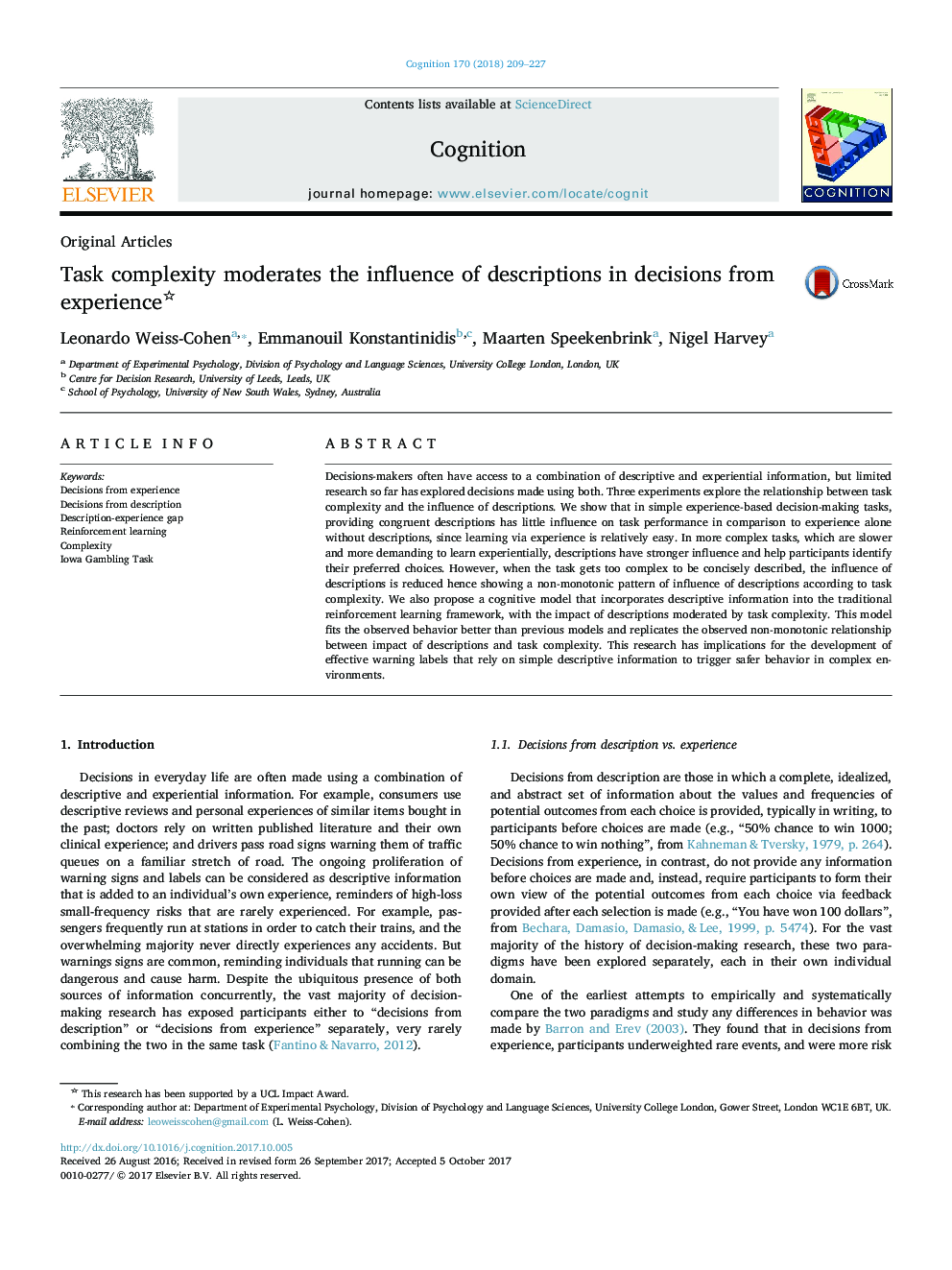| Article ID | Journal | Published Year | Pages | File Type |
|---|---|---|---|---|
| 7285668 | Cognition | 2018 | 19 Pages |
Abstract
Decisions-makers often have access to a combination of descriptive and experiential information, but limited research so far has explored decisions made using both. Three experiments explore the relationship between task complexity and the influence of descriptions. We show that in simple experience-based decision-making tasks, providing congruent descriptions has little influence on task performance in comparison to experience alone without descriptions, since learning via experience is relatively easy. In more complex tasks, which are slower and more demanding to learn experientially, descriptions have stronger influence and help participants identify their preferred choices. However, when the task gets too complex to be concisely described, the influence of descriptions is reduced hence showing a non-monotonic pattern of influence of descriptions according to task complexity. We also propose a cognitive model that incorporates descriptive information into the traditional reinforcement learning framework, with the impact of descriptions moderated by task complexity. This model fits the observed behavior better than previous models and replicates the observed non-monotonic relationship between impact of descriptions and task complexity. This research has implications for the development of effective warning labels that rely on simple descriptive information to trigger safer behavior in complex environments.
Related Topics
Life Sciences
Neuroscience
Cognitive Neuroscience
Authors
Leonardo Weiss-Cohen, Emmanouil Konstantinidis, Maarten Speekenbrink, Nigel Harvey,
